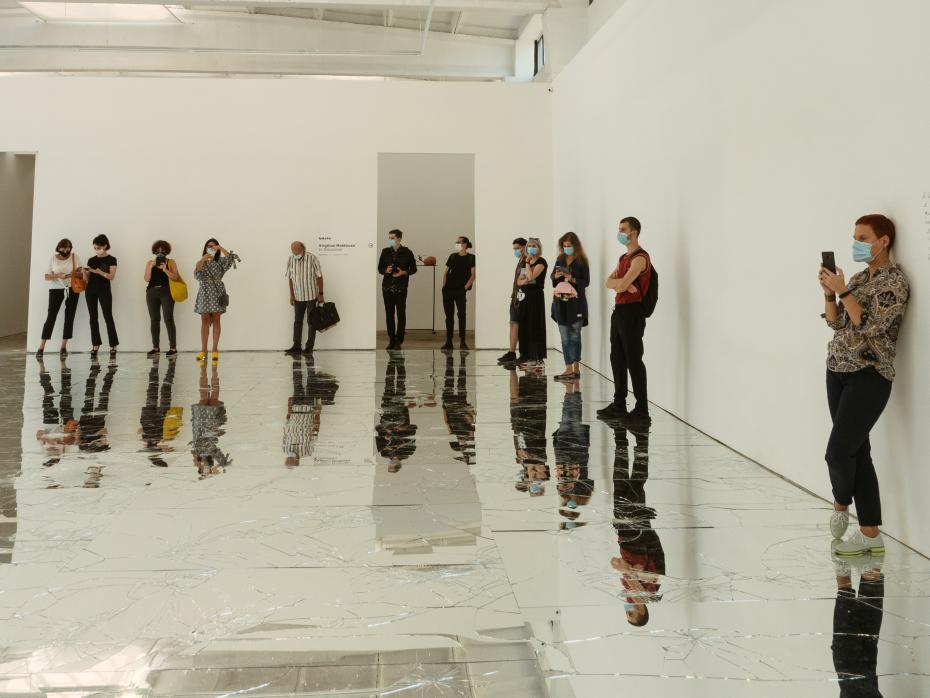A year ago, I launched a podcast exploring ideas from my research and practice in sport coaching. What began as a simple public engagement project quickly became something far more powerful; it reshaped how I see the role of academics in society, and what we need to thrive in our work.
You don’t have to start a podcast to benefit. Here are four lessons I’ve learned behind the mic that can help any academic boost impact, satisfaction and performance.
1. Embrace modern channels for sharing research
Gone are the days when academics could publish their work in scholarly journals without having to consider public engagement beyond academic circles. The contemporary academic is a public intellectual, and today’s academic landscape is increasingly focused on mobilising knowledge, not just creating it. Our academic communication must evolve to keep up with the times, by diversifying the media we use to reach the most people possible.
- Five things to know before you launch a research podcast
- Podcast starter kit: what you need to get recording and posting now
- Get your research out there: 7 strategies for high-impact science communication
By releasing podcasts, videos or blogs about our work, we can instantaneously reach a global audience. Plus, there are plenty of outside-the-box ways to evidence impact with a bit of creativity and initiative. I track podcast downloads and survey my listeners to gather evidence of how their practice has changed through interaction with my work.
Public engagement can also lead to unexpected opportunities. After recording a single 30-minute podcast episode on a pedagogical idea in sport coaching, a national governing body reached out and invited me to design and deliver a professional development event for coaches based on the concept.
Bringing your research into the 21st century through public translation can supercharge your career growth and lead to exciting, unanticipated collaborations.
2. Own your voice and build confidence
Many academics hesitate to communicate publicly through fear of criticism, saying the wrong thing or not appearing clever enough to justify the “PhD” after our names. As a result, most public speaking is confined to carefully curated conference presentations attended mostly by other academics, and our writing is often overly formal and packed with technical jargon that alienates non-academic audiences. Meanwhile, our public anxiety continues to grow in the background.
Podcasting has made me much more comfortable sharing my ideas openly. It’s also helped me embrace imperfections in how I communicate, knowing I’m doing something meaningful by connecting with the grass-roots community I aim to serve.
That growing confidence has since fuelled new ventures; I’ve launched a newsletter and am developing a public-facing book based on themes from the podcast, inspired by science communicators like Brian Cox. I used to think only senior academics could take such steps, but I now see that early career researchers like me are already shaping our fields and acting as thought leaders in our own right.
Public engagement is not only a powerful way to influence others; it’s also a transformative way to grow ourselves.
3. Rekindle regular intellectual conversations
With universities embracing remote work and academics juggling demanding teaching and research responsibilities, opportunities for informal, collegial conversations about research have sharply declined. While journal articles and books provide insight, they represent closed forms of communication that limit genuine engagement. By interviewing other researchers on my podcast, I have gained insights that go far beyond their latest studies, learning not only what they found but also nuances within their thinking that can only be discerned through two-way conversation.
Academics should actively seek out intellectual stimulation through human connection, whether in person or online. Podcasting and other conversational formats offer powerful ways to support your curiosity and develop your thinking. Even as a listener of other’s podcasts, you can feel a sense of participation in the dialogue without being directly involved. Podcasters like me typically create spaces for further engagement through community forums or on social media, opening the door to direct exchange as well. So, why not step in and join the conversation?
Intellectual conversation is not a luxury; instead, it is a vital source of learning and inspiration that academics must tap back into.
4. Infuse fun into your subject
In academia, our work often centres on specific phenomena and, over time, it can feel mundane, with the lack of spontaneity eroding our enjoyment of both the subject and the field. Podcasting pushed me to communicate more creatively about my work, from explaining and critiquing theory to commenting on current events and exploring new ideas with others.
Public-facing communication channels need to be engaging and entertaining to capture attention, which in turn encourages us to make our work more compelling. This is not about choosing entertainment over substance, but about finding ways to engage people with important, often overlooked topics in the public sphere. In my case, this shift improved how I communicate, reignited my passion for my subject and brought renewed energy and focus to my daily work.
Our work is hard, so why not make it fun, too?
Whether or not you choose to pick up a microphone, adopting a podcasting mindset can help you step up to the modern demands of a career in academia, build confidence for thought leadership, nurture everyday scholarly exchange and rediscover enjoyment in your field.
Mark Carroll is programme leader for the MSc Sport and Exercise course at the University of the West of Scotland and a coach educator with Scottish FA.
If you would like advice and insight from academics and university staff delivered direct to your inbox each week, sign up for the Campus newsletter.




comment